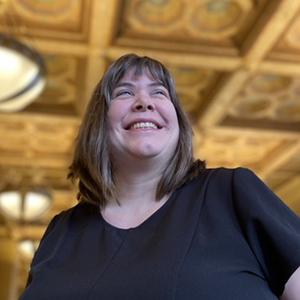- Took place May 11, 2022
The American Library Association (ALA) recently codified a commitment by libraries and library workers to recognize and dismantle systemic and individual biases, confront inequity and oppression, and enhance diversity and inclusion by adding a 9th principle to the ALA Code of Ethics. Our descriptive practices, the way we organize our collections, and how we have created authority records in libraries are not exempt from bias, racism, and inequity. Hear from 3 libraries that are working towards eliminating bias in their collections and practice to create more inclusive and accessible spaces for their communities.
Susan Semmler (Rosemount High School Library) will share the details about their project to move the narrative non-fiction, memoirs, autobiography, and biography away from the Dewey Decimal System and into a genre-like classification system to help students browse and find interesting books more easily.
Michele Leininger (Marshall-Lyon County) has been working to move away from Dewey since 2016, starting on small projects and now making bigger shifts in the collection, not only to address biases in Dewey but also to be more responsive to 21st century community browsing.
Kate Clayborne and Rebecca Wolf (Hennepin County Library) will discuss their Minnesota Legacy funded project to update Library of Congress name authority headings of Indigenous content creators, and will also share future project plans.
